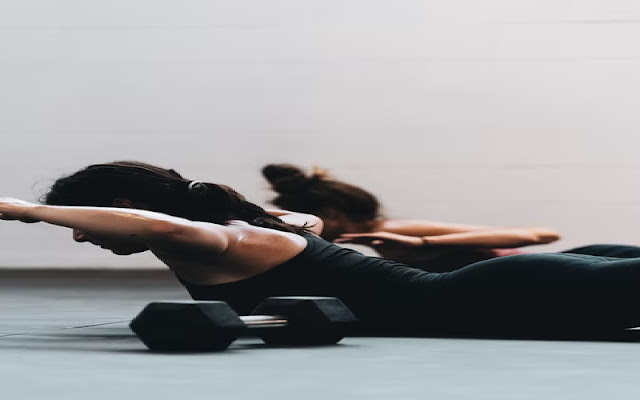Featured
- Get link
- X
- Other Apps
Wearable Fitness Trackers And, More
Wearable fitness trackers are small, portable devices that can be damaged on the wrist, arm, or chest to track physical activity and health data. They typically measure steps taken, distance traveled, calories burned, heart rate, and sleep quality. Some fitness trackers also take additional features, such as GPS tracking, swim tracking, and music playback.
Fitness trackers can be a great way to motivate you to be
more active and to track your progress over time. They can also help you to
identify areas where you can improve your fitness, such as by increasing your
step count or getting more sleep.
Here are some of the benefits of using a wearable fitness
tracker:
Motivation: Fitness trackers can help you to stay motivated
to reach your fitness goals by trailing your progress and providing feedback.
Tracking: Fitness trackers can track a variety of physical
activity data, such as steps taken, distance toured, calories burned, heart
rate, and sleep quality. This data can help you to see how active you are and
to identify areas where you can improve.
Health insights: Some fitness trackers also provide health
insights, such as your resting heart rate, VO2 max, and sleep stages. This data
can help you to understand your overall health and fitness levels.
If you are considering getting a wearable fitness
tracker, there are a few things to keep in mind:
What features are important to you? Some fitness trackers
have a lot of features, while others are more basic. Consider what features are
important to you, such as GPS tracking, swim tracking, and music playback.
What is your budget? Fitness trackers variety in price from
around $50 to $300 or more. Set a budget beforehand you start shopping so that
you don't overspend.
What is your lifestyle like? If you are active and
participate in a variety of sports, you will need a fitness tracker that can
track a variety of activities. If you are more sedentary, you may not need a
tracker with as many features.
Once you take considered these factors, you can start
shopping for a wearable fitness tracker. There are many great options
available, so you should be able to find one that fits your needs and budget.
What are the benefits of wearable fitness trackers?
There are many benefits to using wearable fitness trackers.
Here are some of the most common:
Motivation: Fitness trackers can help you stay motivated to
reach your fitness goals by trailing your progress and providing feedback.
Tracking: Fitness trackers can track a variety of physical
activity data, such as steps taken, coldness traveled, calories burned, heart
rate, & sleep quality. This data can help you see how active you are and to
identify areas where you can improve.
Health insights: Some fitness trackers also provide health
insights, such as your resting heart rate, VO2 max, and sleep stages. This data
can help you understand your overall health and fitness levels.
Reminders: Some fitness trackers can also send reminders to
move, drink water, or take medication. This can help you stay on track with
your health goals.
Social support: Some fitness trackers allow you to connect
with friends and family who are also using fitness trackers. This can provide
social support and motivation.
Overall, wearable fitness trackers can be a great way to
improve your health and fitness. They can help you track your progress, stay
motivated, and learn more about your health.
Here are some additional benefits of using wearable
fitness trackers:
Reduced stress: Studies have shown that using a fitness
tracker can help to reduce stress levels. This is likely due to the fact that
fitness trackers can help you to track your progress and see how active you
are. This can give you a sense of accomplishment and make you feel better about
yourself.
Improved sleep: Fitness trackers can also help to improve
sleep quality. This is because they can track your sleep patterns and show you
how much sleep you are getting each night. This information can help you to
identify any areas where you can improve your sleep habits.
Early detection of health problems: Some fitness trackers
can also help to detect early signs of health problems. For example, some
trackers can track your heart rate and alert you if your heart rate is too
high. This could be a sign of a heart condition.
If you are considering getting a wearable fitness
tracker, there are a few things to keep in mind:
What features are important to you? Some fitness trackers
have a lot of features, while others are more basic. Consider what features are
important to you, such as GPS tracking, swim tracking, and music playback.
What is your budget? Fitness trackers range in price from
around $50 to $300 or more. Set a budget before you start shopping so that you
don't overspend.
What is your lifestyle like? If you are active and
participate in a variety of sports, you will need a fitness tracker that can
track a variety of activities. If you are more sedentary, you may not need a
tracker with as many features.
Once you have considered these factors, you can start
shopping for a wearable fitness tracker. There are many great options
available, so you should be able to find one that fits your needs and budget.
- Get link
- X
- Other Apps
Popular Posts
Nutritional and Organoleptic Aspects of Goat milk
- Get link
- X
- Other Apps

Comments
Post a Comment